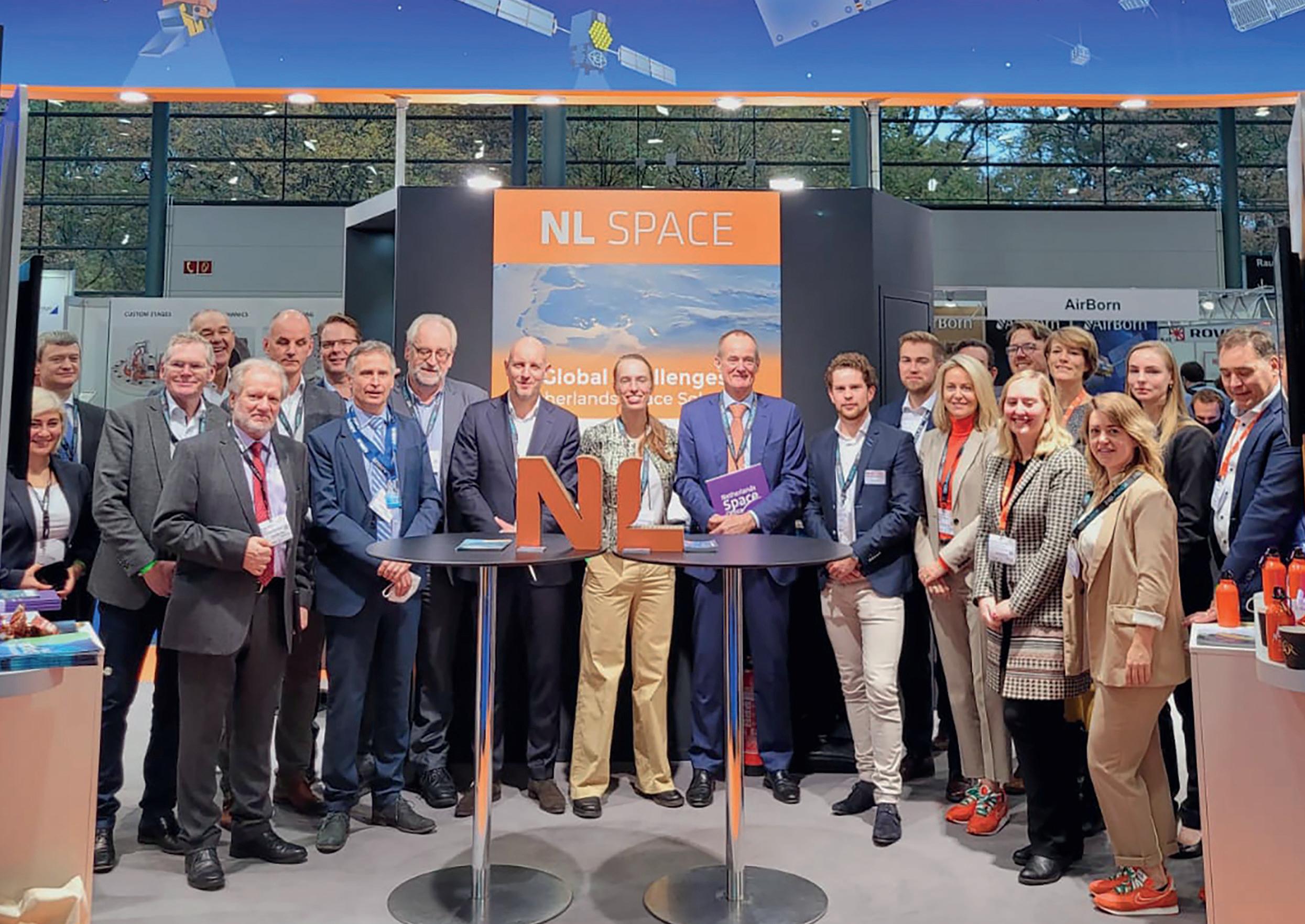
4 minute read
Interview: “Satellites are crucially important to us”
Mila Luleva
Head of the remote sensing department Rabobank
Advertisement
In 2021, Rabobank launched project Acorn, which is designed to help small farmers in developing countries and combat climate change at the same time. Mila Luleva, head of the remote sensing department: “Satellite data make new solutions scalable and in doing so hopefully pave the way to global success.”
Project Acorn brings many elements together: small farmers, satellite data, CO₂ emissions, the climate. Let's start at the beginning. What does “Acorn” stand for?
“The abbreviation is short for ‘agroforestry carbon removal units for the organic restoration of nature.’ Simply put, we stimulate small farmers in Africa, Asia and Latin America to store CO₂ on their land. They can do this by growing different plants and trees alongside e.g. their cocoa or coffee beans. The result is a combination of agriculture and forestry: agroforestry.”
Why would these farmers want to care for other plants and trees, besides the crops they actually earn their income with?
“Agroforestry protects farmers against the impact of climate change, improves the quality of the soil and diversifies their diet, compared to a monoculture. On top of that, they receive financial compensation. Major corporations all over the world have to reduce or offset their carbon emissions. One way to do that is by purchasing carbon removal units on the market for emission allowances. They can reach out to small farmers for this, who earn these units by storing CO₂ through agroforestry. A single hectare of land can easily produce eight units. At the current exchange rate, a small farmer can earn thirty to fifty percent more revenue per year.”
Why is this option preferable to planting a large forest somewhere in the world as a way to offset one's carbon emissions?
“Planting a large forest made up of a single type of tree only results in the storage of CO₂. Acorn wants to do more than that. We want to serve more sustainability targets than fighting climate change alone. Agroforestry contributes to our planet's biodiversity. On top of that, small-scale farmers benefit from this method as well. They have more income security and may even be able to hire new people for their business.”
Both literally and figuratively, there is a large distance between you and the farmers who have joined the project. How do you safeguard the project's quality?
“Quality control is very important to us. We have therefore initiated a certification project with the Plan Vivo Foundation. This organisation evaluates our methods and ensures everything is being done in a scientifically sound manner. It lets us know that the carbon removal units we sell to our clients are of sufficient quality, but also how they were created, whether the farmer uses fair-trade methods, if they take care of their employees and more.”
What role does space play in project Acorn?
“Satellites are of crucial importance for this system. For starters, they are used for the quality control purposes I mentioned. Satellites can measure - regularly and with high quality - how much vegetation a farmer grows on their land. We then know how much CO₂ that farmer is storing on their land.
Furthermore, satellites are essential for the scalability of the project. Our goal for project Acorn is to reach more than twenty million farmers all over the world. Without the global coverage that satellites provide, that would simply be impossible.”
Besides Rabobank, are any other Dutch parties involved in this project?
"We are working together with parties such as Satelligence and Space4Good. We have also launched pilot projects with VanderSat, 52impact and FarmTree, among others. Of course, these businesses are competing against each other to produce data of the highest quality. In the end, however, we are all part of a larger ecosystem that aims to use geo-information to resolve social issues.”
How does project Acorn relate to the G4AW programme, through which NSO gives millions of small-scale farmers - particularly in Africa - access to satellite data?
“Our aims are the same. We want to help small farmers and make them more resilient. We do this via the market for CO₂ emissions. Partly due to projects such as G4AW, the Netherlands is a global leader in the field of satellite applications and the use of geodata. The fact that not only the national government but also a corporation such as Rabobank uses these data proves that their importance will continue to grow in the years to come.”
Acorn was launched nearly one year ago. What are your hopes for the future?
"Developments in the space sector are happening incredibly quickly. As time goes on, we get access to more and more satellite data of an increasingly high resolution. In part, we owe that to ESA's Copernicus programme and to the European Commission. The Netherlands is and will remain a pioneer when it comes to using space technology and geodata for agricultural purposes. As a bank, our goal is to make optimal use of these resources.”
5Stimulating international trade











